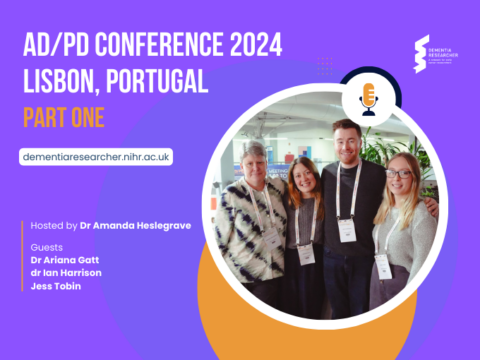
Dr Maxine Mackintosh
Name:
Dr Maxine Mackintosh
Job Title:
Postdoc Researcher and a cofounder of One HealthTech
Place of work / study:
Genomics England
Area of research:
My work is at the intersection of data science and dementia, where I am using electronic medical records from ~100,000 dementia patients to look back 20 years to understand when we can start seeing the earliest signs of cognitive decline.
How is your work funded:
Genomics England
Tell us a little about yourself:
I lead the Diverse Data initiative at Genomics England, which aims to reduce health inequalities in genomic medicine by ensuring patients, regardless of their background, receive the same quality of genomics-enabled personalised medicine, supported by the latest research on people like them. I’m also the co-founder of One HealthTech – a global, volunteer-led, grassroots community that supports and promotes under-represented groups in health innovation.
Prior to this I was an Enrichment PhD student at the Alan Turing Institute and University College London’s Institute of Health Informatics (Denaxas Lab). My PhD involved using medical records to uncover early signs of dementia. I’m particularly is interested in how we might make better use of routinely collected data to inform our understanding of health and diseases. Prior to this, I completed a BSc in Biomedical Sciences (UCL) and an MSc in Health Policy, Planning and Financing (LSE & LSHTM). I’ve been very fortunate and was able to work in wide range of places through internships and projects, including the Royal Society, Roche, L’Oreal, Department for International Development, and NHS England. This has made for an overall pretty fulfilling career so far.
Tell us a fun fact about yourself:
I ran a half-marathon in Pyongyang, North Korea, last year. It was A-MAZING. And a bit odd. In equal measures.
Why did you choose to work in dementia?
I was looking for a PhD that combined anything to do with the brain (because of my BSc) and data science and I stumbled across this one! But now that I’m nearing the end of my PhD, I’ve come to realise how well dementia lends itself to electronic health record research and using new statistical approaches. The multi-factorial nature, long-latency and heterogeneity of condition is the ultimate data science problem and really allows us to take a fresh perspective on what the early dementia phenotype looks like.

 Print This Post
Print This Post




